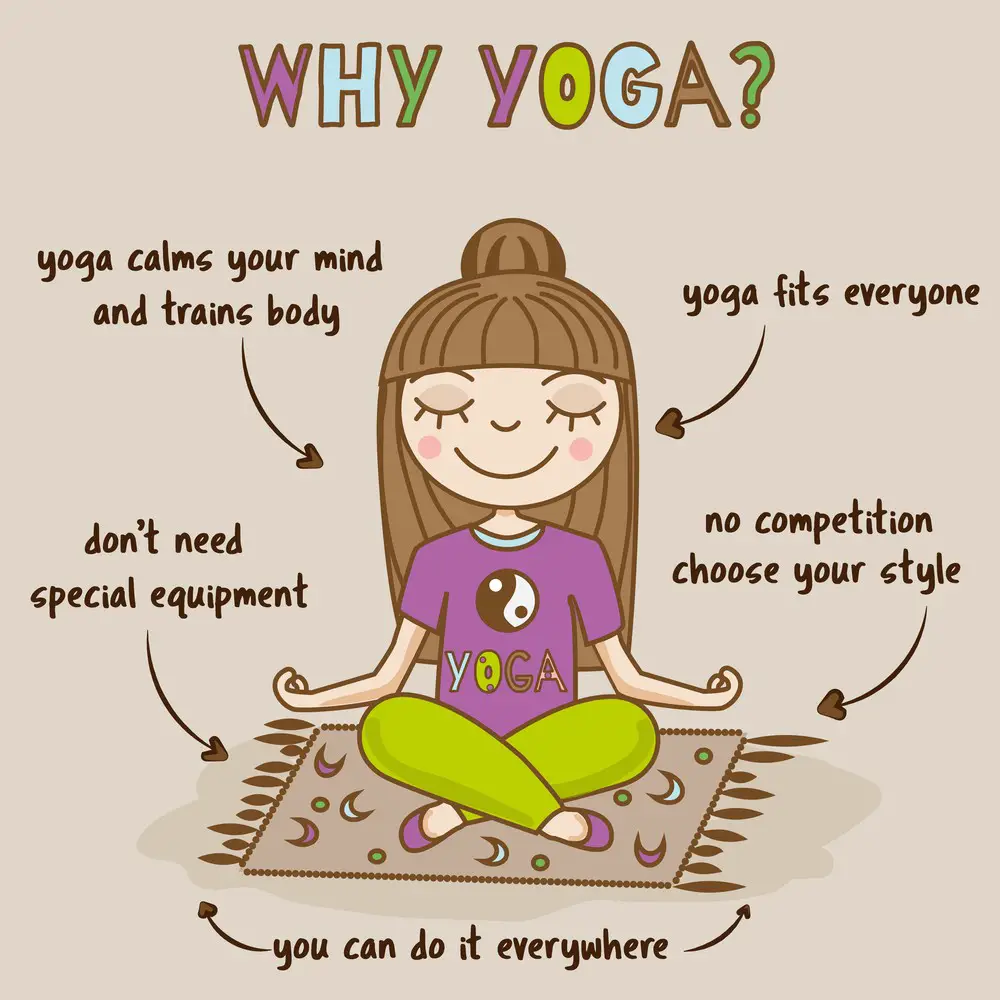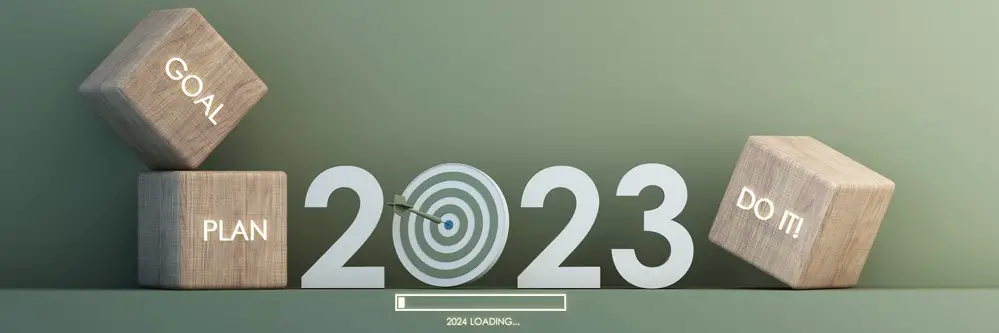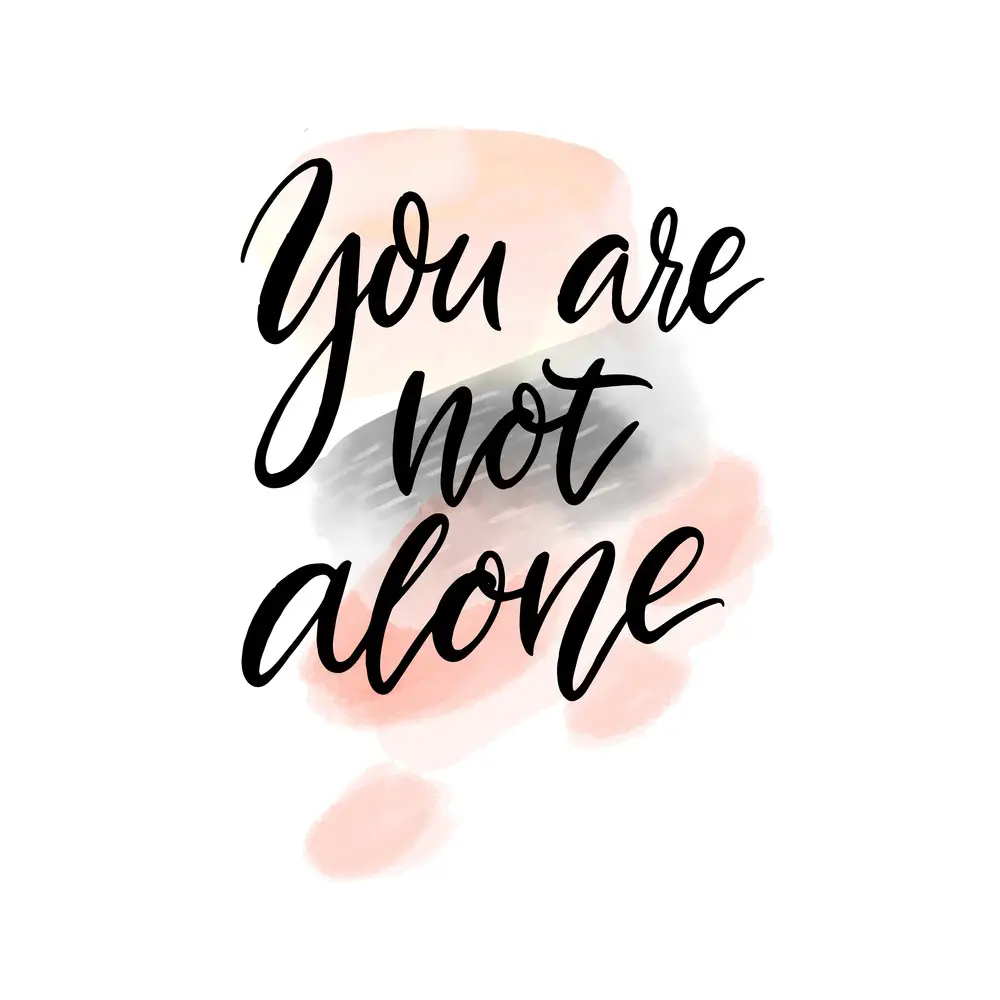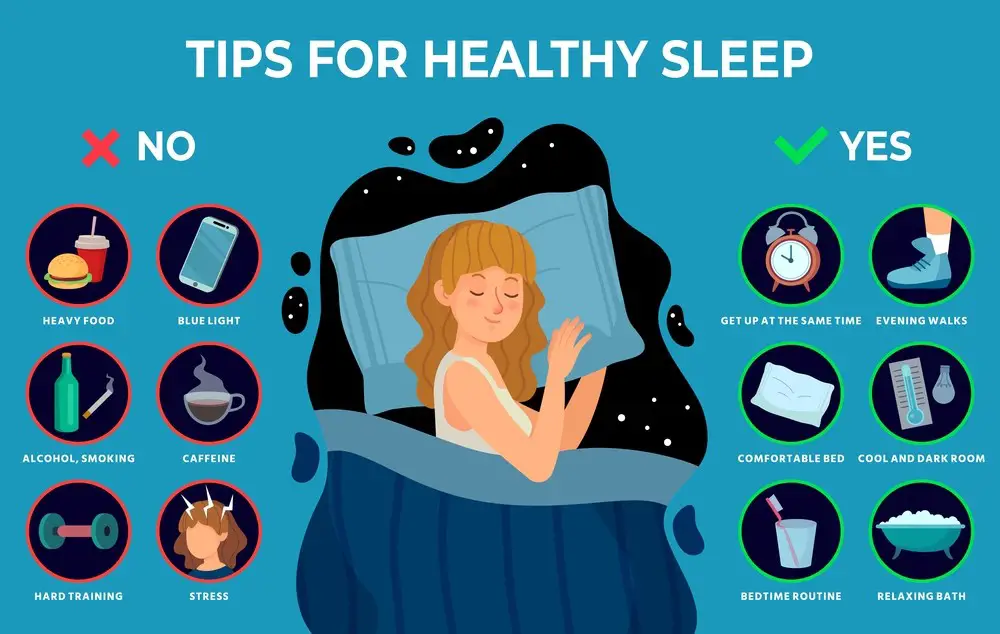As a BetterHelp affiliate, we receive compensation from BetterHelp if you purchase products or services through the links provided
Seeking to improve your sleep quality? We’ve gathered ten expert insights from CEOs to Life Coaches, all sharing their tried-and-tested techniques. From practicing “mindful unwinding” before bed to incorporating yoga into your sleep routine, discover the strategies that have significantly enhanced your sleep quality.
- Practice “Mindful Unwinding” Before Bed
- Adopt Military-Style Breathing Exercises
- Establish a Consistent Bedtime Routine
- Implement the “Sleep Restriction” Technique
- Use a Sleep App for Relaxation
- Create a Sleep-Friendly Environment
- Maintain a Sleep Diary
- Indulge in Pre-Bedtime Reading
- Design Your Bedroom for Better Sleep
- Incorporate Yoga into Your Sleep Routine
 Practice “Mindful Unwinding” Before Bed
Practice “Mindful Unwinding” Before Bed
One technique that’s been key for good sleep is practicing “Mindful Unwinding” about an hour before bed. Instead of the usual TV time or endless phone scrolling, I dedicate this hour to activities promoting mindfulness, such as gentle stretching, deep breathing, or journaling about my day.
By processing my emotions and grounding myself, I’ve found that I fall asleep more easily, with my mind relaxed and free from internal chatter, waking up feeling refreshed. For instance, after a particularly challenging day, rather than ruminating on the “what if” and “should have” thoughts, I journal my feelings for reflection and engage in breathing exercises.
The benefits of this habit extend beyond just a good night’s sleep—it fosters a clearer mind and a more balanced emotional state.
Bayu Prihandito, Psychology Expert, Life Coach, Founder, Life Architekture
Adopt Military-Style Breathing Exercises
One technique that’s improved my sleep quality is breathing exercises, specifically one calming exercise used by the military. Breathe in for seven seconds, hold for two seconds, and take eight seconds to breathe out. Controlled breathing can calm you, and that helps you sleep faster and better.
Focusing on breathing, however, you do it, also helps release your mind from all the other racing thoughts that run through it when you lie down for bed. All of that together helps you drift into sleep.
Amruth Laxman, Founding Partner, 4Voice
Establish a Consistent Bedtime Routine
A bedtime routine is an important step toward improving sleep quality. It helps signal your body that it’s time to wind down and get ready for sleep. A consistent evening schedule can help you fall asleep faster and feel refreshed each morning.
Your bedtime routine should include activities that help you relax. Aim for calming rather than stimulating activities, such as taking a warm bath or shower, reading a book, or doing light stretching and breathing exercises. Keep your devices out of the bedroom so you’re not tempted to stay up scrolling through Instagram!
Your routine should also include an early bedtime so you get the recommended amount of sleep each night. Everyone’s sleep needs differ, but most adults need around seven to nine hours a night to feel well-rested.
Evan Tunis, President, Florida Healthcare Insurance
Implement the “Sleep Restriction” Technique
As a fully remote worker, it’s easy to become careless about how much time is spent in bed. Waking up, doing some work from bed, and later falling asleep on the couch while watching TV can become a habit. Once this habit is settled, falling asleep in bed can be nearly impossible.
However, “sleep restriction,” combined with a daily dose of melatonin, can work wonders in correcting sleep troubles—with no exercise!
Here’s what sleep restriction involves:
- Waking up at the same time every day, no exceptions.
- Setting a time to sleep and not getting into bed until then (even if already tired!).
- Using the bed for sleep only.
It may take a few days to adjust, but sleep quality can improve once the habit of being in bed only at the correct time is established. With the help of melatonin, it can become easier to relax before drifting into a restful sleep.
Chad Davis, Writer, Editor, Content Marketer, team-building.org
Use a Sleep App for Relaxation
I improved my sleep quality with a sleep app to quiet my mind. My app has stories, words, and thoughtful sayings that help me rest. I can set it for 30 minutes, an hour, or six hours, so it fulfills whatever I need that night.
Focusing my thoughts on the words and stories keeps my mind from racing to other thoughts, which helps me sleep faster and get a deeper rest.
Baruch Labunski, CEO, Rank Secure
Create a Sleep-Friendly Environment
What’s made a difference is creating a sleep-friendly environment. I make it a point to remove all distractions from my room before going to bed—that means no phone, no laptop, just a quiet, peaceful space. Investing in a high-quality pillow and blanket has also been a game-changer; your sleep is only as good as your comfort level.
Furthermore, a cup of chamomile tea before bed helps to soothe my mind and prepare my body for sleep. It’s these simple changes that have had such a significant impact on my sleep quality.
David Rubie-Todd, Co-Founder and Marketing Head, Sticker It
 Maintain a Sleep Diary
Maintain a Sleep Diary
Recently, I have started using a sleep diary to improve my slumber’s duration and depth. By keeping track of factors like caffeine consumption, exercise intensity, timing, diet quality, and bedroom environment conditions, I found that making micro-adjustments to each of these dimensions had a meaningful positive impact on my sleep quality.
Having a record that I could refer to ensured that I stuck with the new habits by providing insight into progress and areas for improvement over time.
Julia Kelly, Managing Partner, Rigits
Indulge in Pre-Bedtime Reading
Reading before bed is one technique that has helped improve my sleep quality significantly. Instead of using technology or scrolling through social media, setting aside a few minutes to slowly read a book helps slow down my brain and calm me down.
What’s common about this approach is the intentional pause; taking an hour or two away from the hustle of everyday life at night gives me mental space to reflect and relax, all while enjoying a good story. This simple change has greatly affected how well I sleep each night.
Amy Ling Lin, CEO, nailsalon.nyc
Design Your Bedroom for Better Sleep
The tip may not be the most technical one, but it’s something most regular people need to hear, and it can make a big difference.
The tip is to put more thought into the sleeping space (bedroom) and be more deliberate about things when it comes to improving sleep. Don’t just design the bedroom to look good; make decisions to help you sleep better.
For example, blackout curtains can improve sleep, rather than purchasing the ones that look good (or not having any). Also, find the best comforter that will keep you at a comfortable temperature rather than just finding something (again) that looks good.
These decisions will help you sleep better consistently and can make a big difference!
Nicolas Tate, Owner, Councilclaims.co.uk

Incorporate Yoga into Your Sleep Routine
Three major factors contribute to sleep struggles: a restless mind, physical discomfort, and poor sleep habits. Addressing one can influence the other two. A 20-minute restorative yoga session followed by five minutes of Shavasana effectively calms my mind, alleviates pain, and diverts me from screens.
Jason Vaught, Director of Content, SmashBrand

Unlocking the Secrets of Serene Slumber: Our In-Depth Analysis of Ten Proven Sleep Techniques
Is sleep proving elusive, turning your nights into restless bouts of tossing and turning? You’re far from alone. Millions of people struggle with getting a good night’s sleep. But here’s the good news: effective solutions exist, many of which come recommended by experts in various fields. We’ve gathered expert tips ranging from life coaches to CEOs, all aiming to help you get that restful night’s sleep you’ve been yearning for.
We’ve dissected these sleep-enhancing techniques into digestible sections, each offering expert insights and our unique perspective. Whether you’re an insomniac seeking relief or someone looking to upgrade your sleep quality, read on to discover tips and strategies to transform your nights into a peaceful escape.
The Zen of Sleep: Unpacking “Mindful Unwinding”
“Mindful Unwinding” is more than just a catchy phrase; it’s a lifestyle adjustment with cascading benefits. Just imagine an hour before bed, deliberately spent doing activities that make you more present and grounded. You’re setting the stage for a drama-free slumber.
- Tip: Consider pairing this mindful hour with a warm, caffeine-free beverage like chamomile tea to set the mood for relaxation truly.
The Art of Breathing: Military Precision, Civilian Comfort
You don’t need to be in uniform to appreciate the calming effects of disciplined breathing. A regimented approach to inhaling and exhaling can prepare your body and mind for the restful state you crave.
- Tip: Use a metronome app set at 60 beats per minute to guide your breathing rhythm.
Clockwork Dreams: The Science of a Bedtime Routine
Consistency is key. Your body loves predictability, so give it a signal that sleep is near. Your pre-sleep activities don’t have to be elaborate—a warm bath and a good book are timeless classics for a reason.
- Tip: Maintain a dedicated “wind-down” playlist to include in your bedtime routine.
Less Is More: “Sleep Restriction” Decoded
Though it sounds counterintuitive, sleep restriction can make your sleep more efficient. By only lying down when you’re genuinely tired, your bed remains a sleep sanctuary, not a theater for your thoughts.
- Tip: Pair this technique with a low-dose melatonin supplement to help your body adjust to the new routine.
Apps of Somnolence: Tech for a Sounder Sleep
Believe it or not, technology can be your sleep ally. Sleep apps offer various relaxation methods, from guided stories to calming soundscapes. Opt for ones with a sleep timer so you won’t wake up to your phone’s chatter.
- Tip: Explore different app features until you find one that syncs well with your personal relaxation needs.
A Room of One’s Own: Your Sleep Sanctuary
Your environment has a direct impact on your sleep quality. Invest in comfort and simplicity: a good pillow, a cozy blanket, and, most importantly, an absence of electronic devices.
- Tip: Consider adding indoor plants to boost oxygen levels and improve air quality.
 Slumber Stats: The Merits of a Sleep Diary
Slumber Stats: The Merits of a Sleep Diary
A sleep diary is your cheat sheet for better rest. Not only does it force you to pay attention to your habits, but it also provides invaluable data that you can tweak and tailor for optimal sleep.
- Tip: Use a dedicated notebook or a sleep-tracking app to keep all your data in one place.
A Bookish Retreat: The Virtue of Pre-Bedtime Reading
Good old-fashioned reading isn’t just for Sunday afternoons. A nightly chapter or two is a cognitive cooldown, steering your mind away from the day’s chaos.
- Tip: Opt for physical books or e-readers with blue-light filters to prevent sleep interference.
Aesthetics of Slumber: The Science of Bedroom Design
Interior design isn’t just about eye-catching decor; it’s also about functionality. Think blackout curtains, temperature-regulating comforters, and strategic lighting.
- Tip: Research sleep-friendly colors when painting or redecorating your bedroom.
The Yogi’s Nightcap: Stretching Your Way to Better Zzzs
Yoga isn’t just for the mat—it’s also for the mattress. Well, sort of. Incorporating gentle, restorative yoga into your pre-bedtime routine can stretch out the day’s kinks and prepare your body for a rejuvenating sleep.
- Tip: Look for poses that you can do on your bed to make the transition to sleep even smoother.
 When To Consult the Sandman: Seeking Professional Help
When To Consult the Sandman: Seeking Professional Help
If you’ve tried numerous techniques and still count sheep into the triple digits, it might be time to consult a sleep specialist. Persistent insomnia, sleep apnea, and other chronic sleep issues require professional intervention.

Goals and Progress: Measuring Your Steps to Slumberland
Setting realistic goals can make your journey to better sleep more navigable. Start small—perhaps with a consistent bedtime for a week—and then add more techniques as you grow comfortable.
- Monthly Check-in: Assess what’s working and refine what’s not.
By tuning into your body’s signals and making conscious changes, you’ll find that quality sleep is not just a dream—it’s an attainable reality.
You’re Not Alone: Charting the Murky Waters of Mental Health & Narcissism with Jacob Maslow”
? Hi, I’m Jacob Maslow. You’re not alone, and I’m living proof that life’s hardest challenges, like surviving 9-11 or facing a court battle with a narcissistic ex, can be navigated ?.
I’ve seen life’s peaks and valleys, from losing over a thousand co-workers in the 9-11 tragedy ? to the joys and complexities of co-parenting ???. Recently, life took a tough turn, with an ongoing court battle and being severed from my kids due to my ex’s non-compliance with court orders ?.
? Through it all, BetterHelp and Lexapro have been my lifelines ??. I take long, soul-clearing walks daily ?? and channel my challenges into writing, offering a lighthouse for those grappling with mental health and narcissism ??.
Let’s journey through these challenges together because no one should go alone ?.

- Breaking the Silence: Why Men’s Mental Health Matters More Than Ever - April 15, 2025
- How to Transform a Home’s Patio Space into a Relaxing Space - March 23, 2025
- 5 Strategies to Use a Cell Phone to Help Manage Your Stress - March 23, 2025
This site contains affiliate links to products. We will receive a commission for purchases made through these links.


 Practice “Mindful Unwinding” Before Bed
Practice “Mindful Unwinding” Before Bed Maintain a Sleep Diary
Maintain a Sleep Diary Slumber Stats: The Merits of a Sleep Diary
Slumber Stats: The Merits of a Sleep Diary When To Consult the Sandman: Seeking Professional Help
When To Consult the Sandman: Seeking Professional Help
